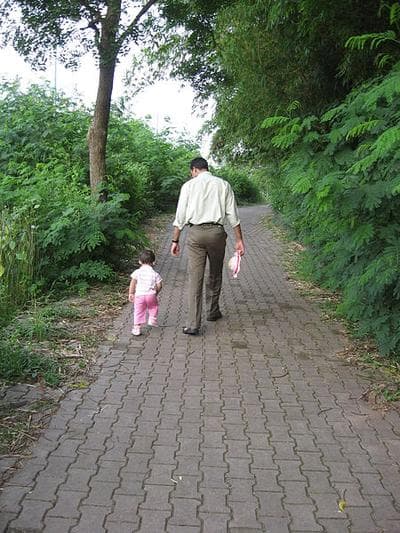Advertisement
New Video Explains How Adults Can Lessen 'Toxic Stress' In Kids
Almost one in four American children are living in poverty, according to a new report by the Annie E. Casey Foundation. The long-term consequences of childhood poverty are bleak to say the least, but the report has a clear-cut policy recommendation to address this issue: invest in interventions that focus on early childhood development.
This policy direction strikes a chord with President Obama, whose most recent State of the Union address focused in part on early childhood education and its importance in setting the stage for a successful adult life.
And it fits perfectly with the spiffy new five-minute video above, narrated by Dr. Jack P. Shonkoff, director of the Harvard Center on the Developing Child.
From molecular biology to behavioral science, Dr. Shonkoff and teams of researchers have drawn from numerous scientific studies as they probed the issue of how a child’s early experiences are predictors of later life realities.
Their findings have led to a hypothesis that’s pointing a way forward in early childhood development research and policy directions. The hypothesis – or what Dr. Shonkoff calls a “theory of change” – is that to help a child’s life turn out better, considerable focus must be placed on building the capacities of the adults that are responsible for shaping children’s home environments and communities.
The theory is based on well-documented brain science indicating that neural circuitry begins developing from day one of a child’s life and the external conditions a child confronts have a profound impact on this process.

Dr. Shonkoff calls this a “multigenerational” approach to early childhood development and says that the skill-sets of adults in a child’s life are vital to lessening the burden of “toxic stress.”
This concept is represented in the video as a series of boulders blocking the path of one kid, preventing him from catching up to his pals who are ahead. Each boulder is labeled with a single stressor, such as mental health or poverty, that, taken together, create a toxic stress pile-up that traps the child, preventing him from successfully moving along the path to a healthy adulthood.
Check out the video above for an explanation of this theory and why Dr. Shonkoff and his team think that investing in the adults that shape kids’ environments is key to a future healthy society.
Readers, does it ring true?
This program aired on June 25, 2013. The audio for this program is not available.
